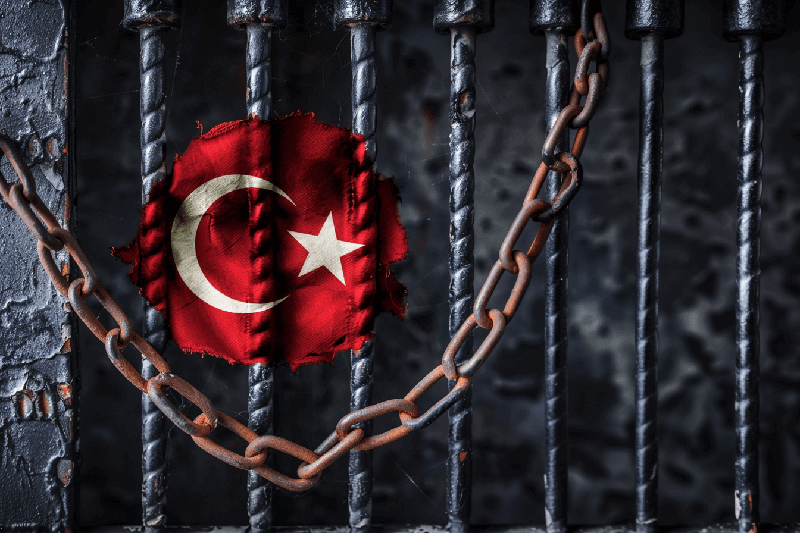VPN Restrictions in Turkey: What You Need to Know
Hey there! If you’ve ever tried to use a VPN in Turkey, you might have run into some issues.
Turkey has some pretty strict rules when it comes to internet freedom, and this extends to the use of VPNs (Virtual Private Networks).
Let’s dive into what’s going on, why it’s a big deal, and what you can do about it.

What's the Deal with VPNs in Turkey?
VPNs are popular tools that help people maintain their privacy online and access content that might be restricted in their country.
Unfortunately, the Turkish government sees VPNs as a threat to their control over the internet.
They’ve been cracking down on VPN usage for several years now, making it harder for people to use these tools to browse freely.
Why VPNs Are Important
VPNs play a crucial role in modern internet usage.
They encrypt your data, making it difficult for anyone, including government agencies and hackers, to spy on your online activities.
VPNs also allow you to bypass geo-restrictions, giving you access to content that might be blocked in your country.
In Turkey, where the government has a history of censoring the internet, VPNs are a lifeline for many.
They allow users to access social media, news websites, and other resources that might otherwise be unavailable.
This is especially important for activists, journalists, and anyone else who relies on free access to information.
Notable Cases of VPN Crackdowns
July 2016: After the Coup Attempt
One of the most significant crackdowns on VPNs in Turkey occurred in July 2016. After a failed coup attempt, the government imposed severe internet restrictions.
This included blocking social media sites like Facebook, Twitter, and YouTube, as well as various VPN services. The aim was to control the flow of information and prevent the spread of dissent.
For more information, you can read about this event in the Guardian.
November 2016: Blocking Tor and VPNs
In November 2016, the Turkish government took another step to tighten its grip on internet usage. They blocked access to Tor, a popular anonymity network, and several VPN services.
This move was part of a broader effort to suppress dissent and control media narratives, particularly in the lead-up to and aftermath of political events.
You can find more details in this Reuters article.
October 2019: Military Operation in Syria
During the military operation in Syria in October 2019, Turkey once again restricted access to social media and VPNs.
The goal was to control the narrative and limit dissent, particularly criticism of the government’s actions in Syria.
This pattern of behavior underscores the Turkish government’s commitment to controlling online discourse. You can read about it on Al Jazeera.
My Personal Take
As someone who values internet freedom and privacy, I find these restrictions quite concerning.
The internet is meant to be an open space where people can share ideas and access information freely.
VPNs play a crucial role in protecting our online privacy and allowing us to bypass censorship.
It’s disheartening to see a government crack down on these tools, especially when they are often used to access basic information and communicate safely.
Why This Matters
The restrictions on VPNs in Turkey are not just about stopping people from watching Netflix shows from other countries.
It’s about controlling the flow of information and limiting the public’s ability to communicate freely. This kind of censorship can have a chilling effect on free speech and access to information.
Impact on Journalists and Activists
For journalists and activists, VPNs are essential tools for their work.
They rely on these tools to communicate securely, access restricted information, and report on sensitive issues without fear of reprisal.
By restricting VPN usage, the Turkish government is making it harder for these individuals to do their jobs effectively.
Everyday Internet Users
Even for everyday internet users, the impact of these restrictions is significant. Many people use VPNs to protect their privacy and security online.
Without access to VPNs, they are more vulnerable to surveillance and cyber-attacks.
What Can You Do?
If you’re in Turkey and need to use a VPN, here are a few tips:
Research VPNs
Some VPNs are better at bypassing restrictions than others. Look for VPNs with a good track record in restrictive environments.
Providers like ExpressVPN, NordVPN, and Surfshark are known for their ability to bypass censorship and provide secure connections. Check out my roundup of the best VPNs here.
Use Obfuscated Servers
Some VPNs offer obfuscated servers that make it harder for governments to detect VPN traffic. These servers disguise your VPN traffic as regular internet traffic, helping you bypass restrictions.
Stay Informed
Keep up with the latest news on internet restrictions in Turkey and adapt accordingly. Knowing what’s happening can help you stay ahead of potential blocks and find new ways to maintain your privacy online.
Conclusion
The situation in Turkey is challenging, but there are still ways to maintain your privacy and access the information you need.
By staying informed and using the right tools, you can navigate these restrictions and continue to enjoy a free and open internet.
If you want to learn more about internet censorship and VPN restrictions in Turkey, check out this comprehensive article from Freedom House.

